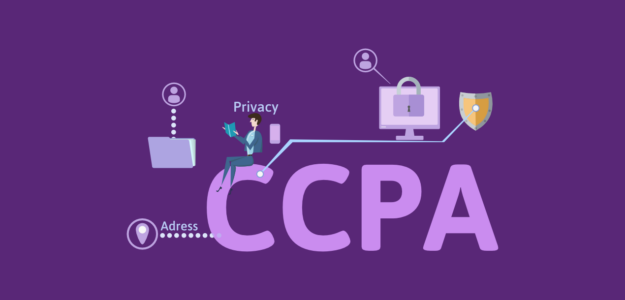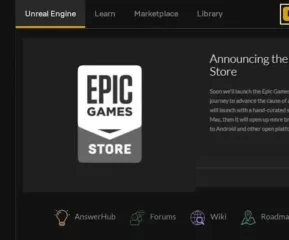If you own a business today, you won’t avoid getting information about your clients. The data you collect helps you to understand them. That way, you can offer goods and services that suit their needs.
Besides, data is vital since it can help you decide on your campaigns. When it comes to Google Analytics, the tool gathers lots of information about your online store customers. That’s why CCPA compliance is vital to protect privacy rights.
But you are getting such sensitive data like the location of your clients’ needs to be taken seriously. The area of your clients isn’t the only data you will get. You may even have their biometric information.
Table of Contents
How to Make Your Google Analytics CCPA Compliance

Through Google analytics, you can easily know your buyers’ search history and email addresses. Your purpose in obtaining such information is for business plans. But remember, it’s sensitive data, and if criminals find it, they may end up abusing it, which calls for CCPA compliance.
Let your customers understand all that you intend to do with their information if you seek to fulfill CCPA compliance. Based on the law, your clients control matters of sharing any information you have concerning them. You also need to make your customers feel empowered to opt-out of your plan if you use their information in a way they don’t like.
Your online store? Must have CCPA compliance status. But how do you attain? Just go through this article, and you will understand it all.
What to do to attain CCPA compliance status
1. Stocktake the data gathered through Google analytics
CCPA compliance isn’t optional, and to make sure you meet the set guidelines. You need to examine the data obtained via Google analytics. That way, you can find out whether the data being collected is within the CCPA compliance requirements or not. You need to adhere to several rules as you collect personally identifiable data.
When done with auditing, you can get some insights if you are within the course of CCPA Compliance status or not. It’s important to keep in mind that auditing how you collect data through Google Analytics isn’t a one-time event. Ensure to conduct ongoing audits.
2. Allow data processing terms
This is another step you have to undertake to attain CCPA compliance. Google offers you data processing conditions with a CCPA compliance service provider appendix. In case you buy your Google analytics 360 from someone who is reselling, you won’t get data processing terms. They remain with the reseller and not Google.
Have you obtained your Google analytics 360 from Google directly, or are you utilizing its free standard version? It becomes easy for you to accept data processing conditions. You can visit your account and go to the settings.
3. Change data retention, as well as settings that create IP anonymity
Google analytics may keep your customers to a given period. But if you seek to attain CCPA compliance, you will have to adjust the time that the tool retains your customer’s information. Just go to the property level within Google analytics and make your changes with ease.
Want to know the procedure? Navigate your way to the property. Are you there? Find the tracking info option. You can click it and proceed to data retention. Once you have reached thee, you will be provided with multiple options.
You can pick the time you wish the tool to retain your client’s data. Ensure to seek legal advice on the choice you make. That’s because you will be required to state your option within your privacy guidelines.
You can take another step and minimize the collection of PI from your customers. Another option within your reach is turning on the IP anonymization. It will help to eliminate the last octet of your client’s IP address.
That will curb your customer’s full IP address from being written to the disk. Remember that the IP address is part of personal data, and if you collect it, you will be going against google CCPA compliance guidelines. By switching that option feature on, the accuracy of geo-location will go down.
4. Update your privacy policy
Under CCPA compliance, you need to describe all kinds of private data you collect. You are required to tell where you are taking such kind of information. Ensure to fine-tune all your privacy disclosures. You can put a thorough privacy disclosure on your site. Inform all your virtual visitors about the data collection process.
If you seek to meet CPPA compliance, ensure you tell the class of data you collect. What you have collected and where. Let the third parties who you are going to share the data with to be known. Your disclosure should be posted in a public location. Ensure you update it every year. Be ready to provide more data when your clients request.
5. Allow your clients to opt-out
Google offers you a feature that restricts the data process. It helps you to take advantage of Google products to enhance CCPA compliance. Do you want to limit the sharing of your customer’s data with multiple Google products and services?
It offers you a direct step to attain that. Just go to the Admin, then account settings. You can then move to edit data sharing settings. Then, you can turn off all the services.
Apart from your disclosure guidelines, offer your customers a chance to ensure you will not sell their data. Are you wondering how you can achieve that? You can have a privacy link on your site home page. Then, your visitors can use that link and visit another landing page. Once there, they can ask you to exempt them from your process of data collection.
6. Initiate the process to honor data rights
Within the CCPA compliance law, you are supposed to create a process to honor data rights. That’s if you are collecting personal data. They include data access requests and data deletion. Your company is required to give its customers all the data you may have collected about them.
7. Decide on how you are going to hand your client’s requests
You need to make your plans and put in place ways your business will field and respond to your client’s requests. They need to know how you use their data, and you should get share that data well. Make it a step by step since you are going to hand many customers.
Ensure to give your clients any copies of their data. In case anyone requests you to delete their data, you need to execute it. You should opt-out of the underage customers from the sale of your data.
8. Train your team
If you work with a team, ensure to train them. It will help them to always CCPA compliance. The privacy of personal data is crucial. That’s why your online business needs to adhere to CCPA compliance guidelines. Google Analytics collects a lot of data about your customers. If sensitive data lands in the hands of criminals, they can use it for the wrong purpose.
You should have good policies to comply with legal needs. Follow the above steps. They will help your business to be CCPA compliance. Your business matters. But the privacy of your customer’s data needs to be secured.
- Top 10 Amateur Blogs Example for Bloggers to Avoid Mistakes - May 2, 2021
- Step to Make Your Google Analytics CCPA Compliance - October 11, 2020
- 17 Best Money Making Apps of 2020 That Pay Real Money - September 25, 2020




